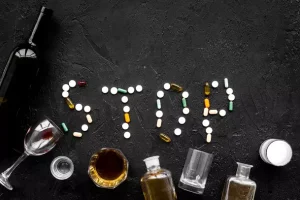
You may well have shed blood, sweat and tears in order to arrive at this point. Sharing your story also gives you a true perspective on how far you have come, and what you have overcome, and feel gratitude for the life you have now. Sharing these stories doesn’t just help those who are new to recovery—it can also be encouraging for people who have been on the journey for a while. Knowing that others have faced setbacks and still found their way back to recovery can help keep you motivated, even when things get tough. Butch worked for one of the state’s first intensive outpatient programs in Jackson, TN and the Jackson Area Council on Alcoholism. During this time, he developed two pilot addiction programs in the Greater West Tennessee area.
- Advocacy involves championing policies and practices that provide individuals in recovery with the resources they need, such as access to treatment and support services.
- By freeing oneself from stereotypes, individuals become more open to seeking help or providing support to others in need.
Your Family
Break larger what is Oxford House objectives into smaller milestones, and celebrate each one upon completion. This practice fosters a sense of accomplishment and reinforces your motivation to continue. For example, if you aim to learn a new instrument, celebrate your progress by treating yourself when you hit significant benchmarks, like learning your first song. Incorporating these strategies into your routine can rejuvenate your relationship with your passions and bring greater joy to your life.
- Discover the difference between Suboxone strips and pills, their effects, costs, and user experiences.
- As readers connect with recovery stories, they start to question their own prejudices and preconceived ideas about addiction and mental health.
- This storytelling allows them to find strength and confidence in their journey.
- Recovery stories emphasize the 3 steps of recognizing addiction as a problem, seeking rehab treatment and rebuilding life.
Connection Helps Us All On Our Recovery Journey
Our personal stories have proven to be a tool that is far more powerful in helping those struggling with addiction than we could ever possibly imagine. Because of this, sharing with others is the basis of all 12 step recovery programmes, as well as many rehabilitation programmes. By reducing stigma, we can create a more supportive environment for people in recovery.
Call for Help With Addiction

Whether you’re just starting out or have been on the road to recovery for a while, we can give you the resources and community you need to stay strong. Don’t wait to get the care you need—reach out to us today to register for outpatient addiction treatment. In recovery, feeling like you’re part of a community can make a big difference. It’s comforting to know that you’re not alone in your journey and that others are there to support you.
Digital Storytelling Guide
Discover how to stop playing the victim and break the cycle with practical keys to personal empowerment. Conquer weed addiction and reclaim your life with proven strategies and professional support. Explore the need for drug addicts’ sharing your story in recovery recovery, from barriers to treatment to empowering therapy approaches.

This encourages others in the same situation, and helps reduce the stigma of addiction and mental health. An effective recovery story is essential for inspiring and engaging its audience. Honesty and vulnerability are key when it comes to sharing personal experiences of addiction and the journey to sobriety. These stories provide relatable accounts, education, empathy, and motivation to the recovery community. Group therapy plays a crucial role in the recovery process, offering individuals a chance to connect, share, and grow together. It’s all about finding a safe space where you can express your feelings, challenges, and triumphs without fear of judgment.
Recovery: Why it Is Important to Share Your Story

Be authentic in the words you use in a way that’s hopeful but also vulnerable. The more vulnerable you are, the more relatable your story will be. You can experiment with different mediums of expression, audiences, messages, and more to identify how you can make the biggest impact. A good way to start is to think back on your progress, personal milestones, and lessons learned. People might judge or look down on those struggling with addiction because they don’t understand it. But when you hear someone’s story, it humanizes the experience—it shows that addiction can happen to anyone and that those https://ecosoberhouse.com/ who are going through it are just like everyone else.
The Experience Blog
There are also many other benefits you may have experienced, such as new jobs, a new love, and repaired relationships with friends and family. One quick note should be made for those whose stories include a relapse. The structure of your story will be a bit different than that of most. You might choose to include your previous attempt(s) at recovery under the banner of “what things were like,” and focus on why things are different this time around.
By sharing personal stories, individuals can reflect on their experiences, recognize their progress, and be proud of how far they have come. This storytelling allows them to find strength and confidence in their journey. Sharing these stories helps break the stigma around addiction and mental health. Hearing others’ experiences helps to eliminate stereotypes and misconceptions. It can lead to more understanding, compassion, and support for those in need of recovery.

